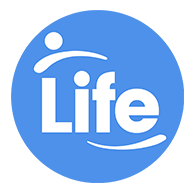Emerging Pediatric Applications Strengthening Adoption in the Neuromodulation Devices Market
Neuromodulation was once reserved for adults with advanced neurological conditions. Today, pediatric neurology is adopting stimulation therapies to improve outcomes for children with drug-resistant epilepsy, dystonia, spasticity, and developmental motor issues. As pediatric indications expand, they significantly influence the neuromodulation devices market (https://www.marketresearchfuture.com/reports/neuromodulation-devices-market-1337).
Early Intervention and Developmental Benefits
Vagus Nerve Stimulation is particularly effective for reducing seizure frequency in children with severe epilepsy. Deep Brain Stimulation, once used only for adults, is now applied to pediatric dystonia to help prevent musculoskeletal deformities. Neuromodulation promotes brain plasticity, allowing children to develop motor and cognitive skills earlier than with drug-only interventions.
Safety, Miniaturization, and Long-Term Management
Device miniaturization and MRI-compatible implants ensure pediatric neuromodulation is safer and more manageable. Long-term follow-up programs enable stimulation adjustments during growth phases without repeated surgeries.
Market Influence and Research Growth
Pediatric neuromodulation encourages companies to design child-specific implants and surgical protocols. Clinical trials focusing on children further expand future market capacity.
FAQ
Q: Is neuromodulation safe for children?
Yes, when administered by trained specialists and monitored long-term.
Q: Why is pediatric adoption increasing?
Early intervention improves lifelong outcomes and reduces disability progression.
- Art
- Education et Formation
- Crafts
- Sciences et Technologies
- Economie
- Politique
- Actualité
- Littérature
- Divertissement
- Histoire
- Health
- Actualité
- Shopping & Commerce
- Music
- Agriculture & élevage
- Voyage et Evènementiel
- Beauté & esthétique
- Religion
- Festival
- Sports
- Fête
- Autres



